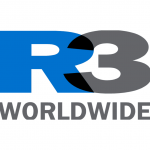By Greg Paull, Co-founder and Principal, R3
Our industry has officially entered a new era, and the impact is clearly visible. Brands are being called to take a stand, and sometimes, to take a side.
They are becoming more discerning with their advertising spend under public scrutiny as people demand that business contribute to greater equality, transparency and security.
Marketers have always judged consumers by what brands they support and what they decide to buy. In turn, the integrity of marketers will now be evaluated by how they advertise and with whom they choose to work with.
Will an agency be selected on creative output and digital savvy? Or will there be further investigation of agency values and equal opportunity? How much of this will matter when it comes to perception and a company’s bottom line?
… Agencies have always invested in defining how they are different from one another. Aside from style of work, they have missions and values and work hard to develop distinct points of view that they hope will set them apart of the rest. This is important when selecting a partner…
Pitching into a partnership
Let’s not kid ourselves. The work matters.
When Peloton unleashed its “dystopian, sexist” ad last Christmas, it lost them US$1.5bn in value. It took nine months for Pepsi to recover from the backlash of the now infamous “Kendall Jenner” ad, and the beverage company saw purchase consideration take a long downhill slide.
That was before. Before the global health crisis. Before a global recession. In times like these, such risks cannot be afforded by both brands and agencies.
Agencies have always invested in defining how they are different from one another. Aside from style of work, they have missions and values and work hard to develop distinct points of view that they hope will set them apart of the rest.
This is important when selecting a partner, but even more crucial is looking at how the work gets approved and made.
This isn’t reality TV
There is a reason why after a total 38 seasons, The Batchelor and The Bachelorette have such abysmal (low double-digit) success rates when it comes to producing successful relationships: No one calculates the risks.
Unlike reality television, the consequences of a bad partnerships for marketers are tangible and real. This is why pitch processes remain important. You’re not just in the business of buying ideas, but also aligning with an ethos, and agreeing on a way of working.
Great creative work always stems from strong partnerships. Marketers with productive, long-term relationships with their agencies will attest that mutual understanding, trust and team spirit makes a huge difference in their day-to-day operations, as well as to overall brand success. Choosing an agency is never easy but having the ability to see each other clearly makes all the difference.
3 ways to reduce risks
Here are three ways marketers can reduce risks as they go into the agency pitch process.
1. Addressing unconscious bias
There’s a lot to be said about bias and prejudices. From Facebook algorithms to the type of data being fed into AI and workplace safety, if there’s one thing that keeps arising in conversation, it’s the fact that everyone sees the world through a particular shade of glass.
Marketers who are seeking to reduce costs by bringing the pitch process in-house will have to be even more mindful of this. Clearly articulated criteria help, but one needs to see beyond the case studies, awards and innovation plays. There is no better way to reduce instances of bias than bringing in an independent, objective view that can judge issues that impact the routine of daily work.
… There’s a lot to
be said about bias and prejudices. From Facebook algorithms to the type of data being fed into AI and workplace safety,
if there’s one thing that keeps arising in conversation, it’s the fact that everyone sees the world through a particular shade of glass…
2. Determining an agency’s risk factor
With fragile economies and weary consumers, it feels like the marketing industry is holding its breath. Having the knowledge that a supplier can perform despite the volatility of today’s marketplace is important for any company.
As the global health crisis has reshaped the dynamics and operations of the agency landscape, the agency you are familiar with might not be the same one you deal with today.
Understanding the constraints experienced by each agency and how they might affect that agency’s ability to meet commitments is important for a sustainable working relationship.
Having this information will not only help procurement teams discover savings opportunities, it will also empower teams to support cost efficiency measures and have the assurance of reliability during uncertain times.
… About 80% of marketers have some form of in-house agency. Teams might be as small as 2 or more than 50, but with advantages
of ownership and increased speed, the direction towards building in-house capability…
3. Involving in-house teams
About 80% of marketers have some form of in-house agency. Teams might be as small as 2 or more than 50, but with advantages of ownership and increased speed, the direction towards building in-house capability is on the up.
As most marketers have opted for a hybrid of in-house talent while outsourcing more specialized skills, ensuring that both in-housed and outsourced teams are able to work together is crucial.
Preventing bad blood between teams should be high on a marketer’s list. Involving in-house talent in the decision-making process will help reduce potential friction and antagonistic feelings about being left out of the creative process.
Greg Paull is principal and co-founder of R3 Worldwide, a global independent consultancy focused on driving transformation for marketers and their agencies. www.rthree.com
MARKETING Magazine is not responsible for the content of external sites.









